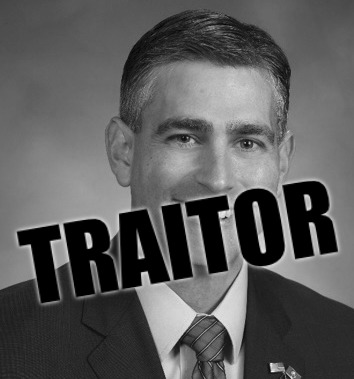If the 16th Legislative District’s lawmakers got the budget they wanted, Washington would face severe cuts across healthcare, human services, education, and corrections. Their no new revenue approach would leave the state without the resources needed to maintain essential programs, worsening existing crises. Despite campaigning on priorities like healthcare and public safety, their vision for the budget would lead to fewer medical professionals, reduced public services, and increased financial strain on families and local governments.
One of the most immediate consequences would be in healthcare. With the Trump administration already putting Medicaid funding in jeopardy, state-level cuts would further weaken Washington’s ability to provide care for low-income residents. Thousands would lose coverage, forcing more people to seek treatment in emergency rooms, driving up hospital costs and increasing expenses to taxpayers. In Walla Walla, where access to medical professionals is already limited, recruiting and retaining healthcare workers would become even more difficult, exacerbating an ongoing shortage.
The crisis would be especially severe in corrections. The Washington State Penitentiary, already struggling to fill 24 (as of 4/4/25) medical positions, would face even greater challenges under this budget. With reduced funding for prison healthcare, inmates would experience longer wait times for treatment, potentially leading to preventable deaths, worsening health conditions, and expensive legal battles for the state. Corrections officers and staff would be forced to manage an increasingly unstable environment with fewer resources.
Beyond healthcare, cuts to human services would leave many vulnerable residents without support. Behavioral health programs, which Washington has been working to expand, would be rolled back, leading to fewer crisis intervention services and longer wait times for substance use treatment. Programs supporting developmentally disabled individuals would be slashed, forcing families to navigate an underfunded system with fewer resources. Without intervention, more people with serious mental health issues would end up in jails or emergency rooms instead of receiving the care they need.
Education would also suffer under the no new revenue budget. Early childhood education programs, such as the Early Childhood Education and Assistance Program (ECEAP), would face significant reductions, limiting access for low-income families. Higher education institutions, including community colleges and public universities, would be forced to raise tuition, cut course offerings, and reduce financial aid. With Washington already struggling to fill critical workforce gaps—particularly in healthcare and education—these cuts would make it even harder to train the next generation of professionals.
Long-term care services would be another casualty. With an aging population, Washington has been working toward a sustainable long-term care model, but under this budget, those efforts would stall. Cuts to home care worker programs and assisted living support would push more seniors into overcrowded nursing facilities or leave them dependent on family members who may not have the resources to provide care. The strain on these families would be significant, potentially forcing more people out of the workforce to care for aging relatives.
Public safety would also take a hit. While the lawmakers of the 16th District have historically supported tough-on-crime policies, their proposed budget would undermine efforts to reduce recidivism. Reductions in funding for rehabilitation and reentry programs would lead to higher rates of repeat offenses, putting more strain on an already overwhelmed prison system. Cuts to law enforcement support services, such as mental health crisis response teams, would make communities less safe in the long run.
The behavioral health system, which both Democrats and Republicans have worked to improve, would see major setbacks. Underfunded crisis services and psychiatric care would leave more people untreated, leading to more emergency room visits, increased homelessness, and higher incarceration rates for individuals with mental illness. The state has made progress in expanding behavioral health resources, but the no new revenue budget would undo much of that work.
Without new revenue, the state would have little choice but to offload costs onto local governments. Counties and cities, which already struggle to fund essential services, would be forced to increase property taxes or cut local programs. Residents would ultimately pay the price—either through higher costs or fewer services—despite promises from the 16th District’s lawmakers to protect their constituents from tax increases.
If this budget became reality, Washington would be left with a crumbling healthcare system, an underfunded education system, and an overwhelmed corrections system. Despite campaign promises to prioritize healthcare, education, and public safety, the actual impact of their budget would be the opposite. The 16th District’s representatives and senator may claim fiscal responsibility, but the cost of their plan would be measured in lives, livelihoods, and lost opportunities for Washington’s future.





